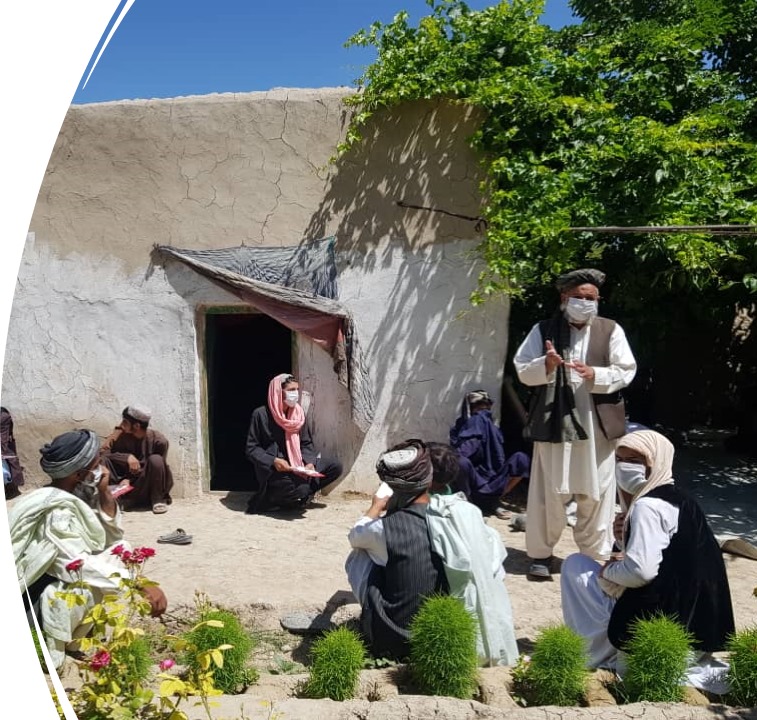
Developing Local Resilience Mechanisms for Climate Change
ECOFA aims to build community resilience to climate change through localized strategies that prioritize mitigation, adaptation, and sustainable development. Key initiatives include:
1. Community-Based Resource Management
Water Resource Protection: Establish water management committees, promote rainwater harvesting, construct absorption wells, and advocate advanced irrigation systems like drip irrigation.
Sustainable Forestry: Organize afforestation programs and forest monitoring groups to combat deforestation and sustain natural resources.
2. Climate-Resilient Agriculture
Crop Diversification: Train farmers to cultivate drought-resistant crops to enhance food security.
Sustainable Practices: Promote eco-friendly farming techniques, soil conservation, and climate-smart technologies like solar-powered irrigation.
3. Disaster Risk Reduction (DRR)
Flood Management: Develop levees, reservoirs, and early warning systems to manage flooding and extreme weather events.
Emergency Preparedness: Establish response teams, prioritize aid for vulnerable groups, and maintain a local database of at-risk households.
4. Community Awareness and Capacity Building
Education Campaigns: Provide workshops, materials, and outreach to highlight the impacts of climate change and promote adaptive behaviors.
Empowering Youth and Women: Involve these groups in conservation activities and equip women-led committees with disaster management skills.
5. Renewable Energy Adoption
Affordable Solutions: Promote solar panels, biogas, and small-scale wind projects.
Energy Efficiency: Introduce efficient appliances and sustainable cooking methods to reduce dependency on natural resources.
6. Ecosystem Restoration
Land and Wetland Rehabilitation: Restore degraded lands and wetlands using sustainable techniques to enhance biodiversity and flood protection.
Biodiversity Conservation: Create protected areas and involve communities in safeguarding endangered habitats.
7. Local Policy Advocacy
Advocate for inclusive policies addressing climate adaptation and disaster risk reduction.
Promote community-based carbon credit initiatives to monetize efforts in reducing emissions.
8. Technology and Data Utilization
Digital Tools: Introduce tools for monitoring climate data and real-time weather updates.
Mobile Applications: Develop platforms for farming advice, alerts, and data sharing.
9. Livelihood Diversification
Skill Development: Train communities in climate-resilient jobs like ecotourism and renewable energy maintenance.
Financial Inclusion: Establish savings and loan systems to support climate adaptation projects.
10. Provision of Education and Training Services for Internally Displaced People
To empower internally displaced individuals to lead independent and self-sufficient lives, ECOFA focuses on providing education and skill development opportunities. By fostering a supportive learning environment, ECOFA enables displaced populations to rebuild their lives and contribute positively to their communities.
11. Provision of Inclusive Education for Children with Disabilities and Street Children
ECOFA is committed to ensuring equal rights and opportunities for children with disabilities and street children. By promoting inclusive education and community integration, ECOFA seeks to end societal exclusion and strengthen family and community bonds for these vulnerable groups.
12. Community-Based Education in Remote Areas
Recognizing the barriers to education in remote regions, especially for girls, ECOFA emphasizes literacy programs and community-based learning initiatives. These efforts aim to address the unique challenges faced by out-of-school children and bridge the education gap in underserved areas. By implementing these strategies, ECOFA can empower Afghan communities to mitigate and adapt to climate change impacts. These localized approaches will safeguard the environment, enhance resilience, and foster sustainable development while addressing social equity.
13. Raising Awareness About Rainwater and Floodwater Harvesting
ECOFA conducts public awareness campaigns to encourage rainwater and floodwater harvesting. By promoting practices such as rooftop rainwater collection, recharge pits, and trench systems in urban and rural areas, ECOFA enables communities to store water for agriculture, livestock, and domestic use. The organization also implements infrastructure to divert rainwater into small dams and reservoirs, making this approach a practical and scalable solution.